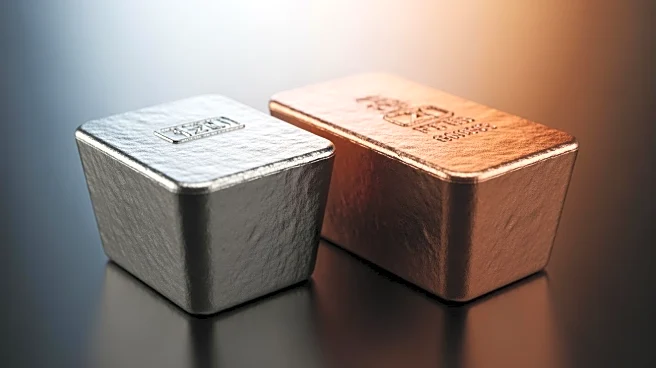What's Happening?
The U.S. Geological Survey has added silver and copper to its list of critical minerals, highlighting their importance to the nation's economy and security. This designation aims to reduce dependence on foreign sources and bolster domestic production.
The U.S. currently imports a significant portion of its copper and silver needs, making the economy vulnerable to supply disruptions. The designation is expected to attract federal and private investment into mining and production projects, potentially boosting domestic supply chains.
Why It's Important?
The inclusion of silver and copper as critical minerals reflects their strategic importance in sectors such as energy, technology, and national security. This move could lead to increased investment in domestic mining and production, enhancing the U.S.'s ability to meet its industrial and defense needs. The designation may also drive innovation and job creation in the mining sector, contributing to economic growth and stability.
What's Next?
The U.S. government may implement policies to support the development of domestic supply chains for silver and copper, including tax incentives and streamlined permitting processes. These efforts could lead to increased production and reduced reliance on imports, strengthening the nation's economic resilience. Stakeholders in the mining industry are likely to explore new opportunities for investment and expansion in response to the critical mineral designation.
Beyond the Headlines
The critical mineral designation for silver and copper could have broader implications for global trade and geopolitical relations, as the U.S. seeks to secure its supply chains. The focus on domestic production may also influence environmental and regulatory policies, balancing economic growth with sustainability goals.
















